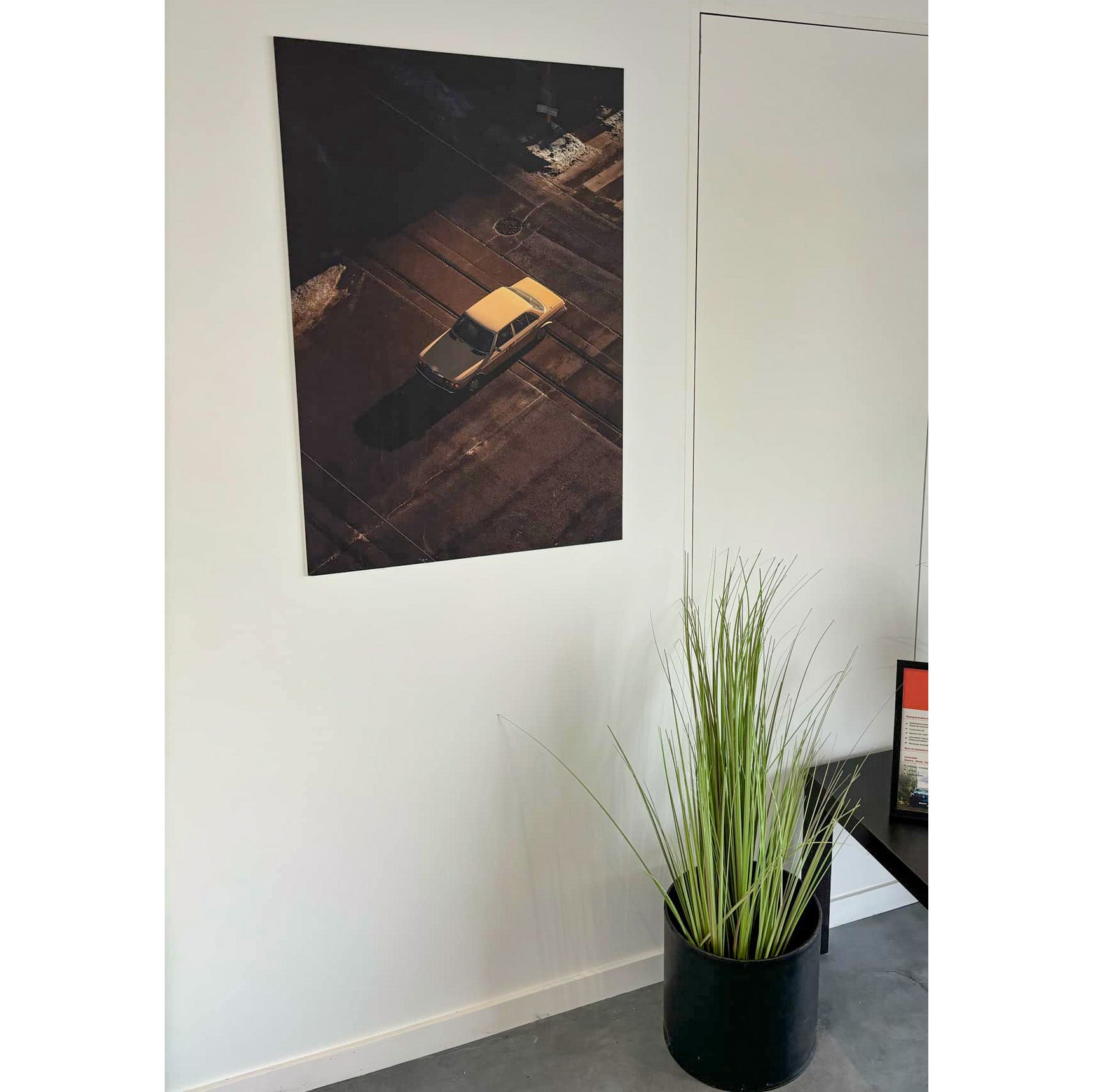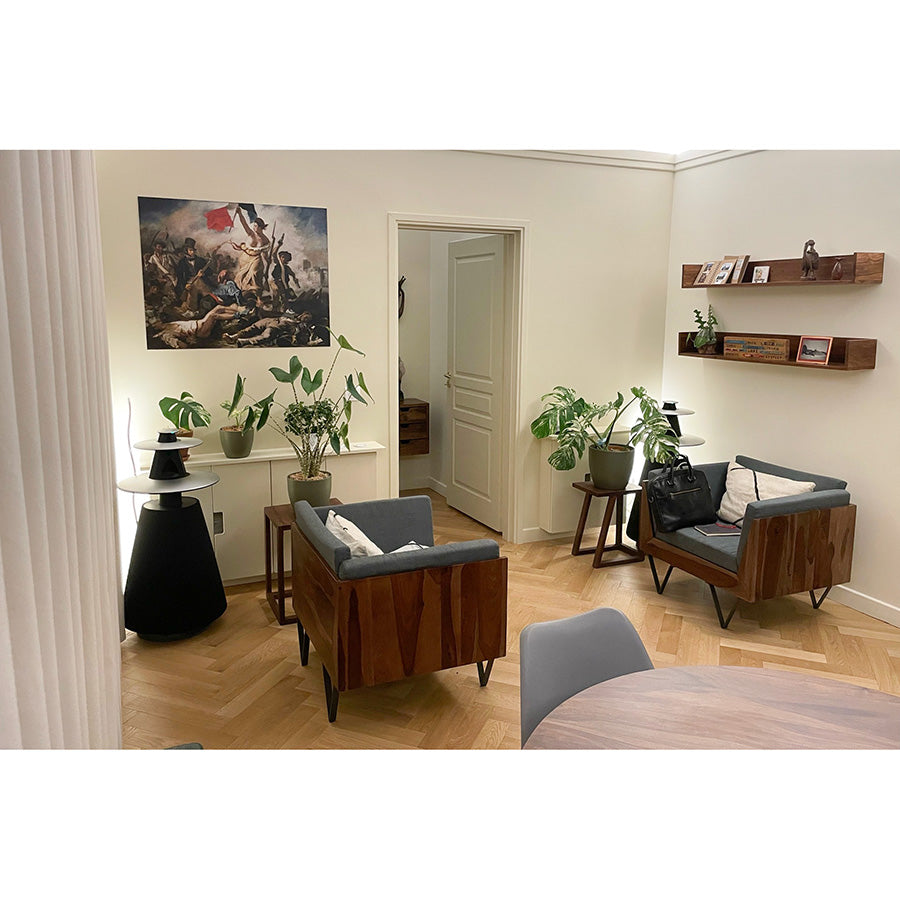Art print | Self-portrait in Turkish costume - Jean-Étienne Liotard


View from behind

Frame (optional)
Jean-Étienne Liotard's Art print Self-portrait in Turkish costume is an iconic piece that embodies not only the artist's exceptional talent but also the spirit of a fascinating era. Created in the 18th century, this painting is a vibrant testament to the interaction between the Orient and the West, a theme that captivated many artists of his time. Liotard, known for his mastery of pastel and meticulous attention to detail, chose to depict himself in a Turkish costume, a decision reflecting his interest in exotic cultures and his travels across Europe and the Ottoman Empire. This work invites viewers to immerse themselves in a world where cultural boundaries blur, revealing the richness and diversity of human experience.
Style and uniqueness of the work
Liotard's style is characterized by finesse and delicacy that shine through in every brushstroke. In this self-portrait, he uses soft colors and subtle nuances to create an atmosphere that is both intimate and refined. The choice of Turkish costume, with its elaborate patterns and rich textures, emphasizes the distinctive character of the artist. Liotard does not merely reproduce a garment; he captures the very essence of the culture he represents. Details such as embroidery and accessories are rendered with precision, demonstrating his keen observation. This work is more than a simple portrait; it becomes an exploration of identity, a reflection of the multicultural influences that shaped Liotard's artistic vision.
The artist and his influence
Jean-Étienne Liotard, born in Geneva in 1702, is often regarded as one of the masters of pastel. His career took him across Europe, where he met influential personalities and absorbed various artistic traditions. His ability to blend styles and draw inspiration from diverse cultures makes him a pioneer in portraiture. The Art print Self-portrait in Turkish costume is a perfect illustration of this approach, as it demonstrates his open-mindedness and desire to transcend conventions.

Matte finish

View from behind

Frame (optional)
Jean-Étienne Liotard's Art print Self-portrait in Turkish costume is an iconic piece that embodies not only the artist's exceptional talent but also the spirit of a fascinating era. Created in the 18th century, this painting is a vibrant testament to the interaction between the Orient and the West, a theme that captivated many artists of his time. Liotard, known for his mastery of pastel and meticulous attention to detail, chose to depict himself in a Turkish costume, a decision reflecting his interest in exotic cultures and his travels across Europe and the Ottoman Empire. This work invites viewers to immerse themselves in a world where cultural boundaries blur, revealing the richness and diversity of human experience.
Style and uniqueness of the work
Liotard's style is characterized by finesse and delicacy that shine through in every brushstroke. In this self-portrait, he uses soft colors and subtle nuances to create an atmosphere that is both intimate and refined. The choice of Turkish costume, with its elaborate patterns and rich textures, emphasizes the distinctive character of the artist. Liotard does not merely reproduce a garment; he captures the very essence of the culture he represents. Details such as embroidery and accessories are rendered with precision, demonstrating his keen observation. This work is more than a simple portrait; it becomes an exploration of identity, a reflection of the multicultural influences that shaped Liotard's artistic vision.
The artist and his influence
Jean-Étienne Liotard, born in Geneva in 1702, is often regarded as one of the masters of pastel. His career took him across Europe, where he met influential personalities and absorbed various artistic traditions. His ability to blend styles and draw inspiration from diverse cultures makes him a pioneer in portraiture. The Art print Self-portrait in Turkish costume is a perfect illustration of this approach, as it demonstrates his open-mindedness and desire to transcend conventions.









